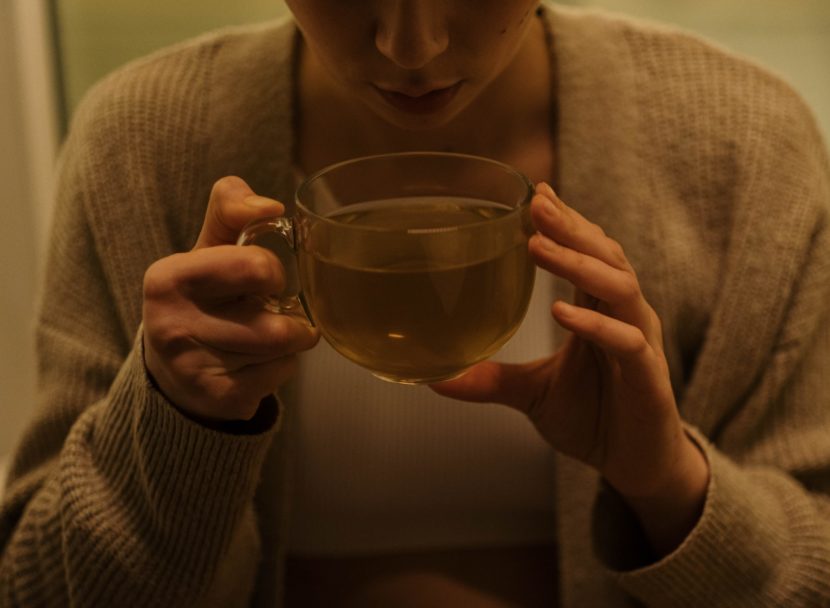Derived from tea leaves, L-theanine (Suntheanine) is studied for its calming and focus-enhancing effects. With the increasing interest in incorporating natural remedies into daily routines, it is important to understand the facts and debunk any myths surrounding L-theanine and Suntheanine.
In this article, we’ll explore the science behind the compounds, their potential benefits, and address common questions. Whether you are a health-conscious individual looking to improve your overall well-being or someone seeking a natural way to manage stress and anxiety, this article will provide you with the necessary information about L-theanine and Suntheanine.
What’s L-theanine?
L-theanine is an amino acid naturally occurring in green and black tea leaves and some mushrooms. Amino acids are molecules that link together and form a protein. The proteins function as a messenger between cells.
What’s Suntheanine?
Suntheanine is L-theanine. Suntheanine is a brand name for L-theanine Taiyo International and the company says that it’s better and purer than the products of other companies.
How does it work?
L-theanine has a wide variety of effects on the body. It promotes relaxation by increasing levels of GABA in the brain. GABA is a neurotransmitter that soothes brain activity. More GABA leads to reduced anxiety and improved sleep quality. More GABA also increases alpha brain waves, the brain waves that occur when you’re daydreaming, praying, or meditating. Your brain produces alpha brain waves when it’s relaxed.
L-theanine also promotes the production of nitric oxide. That helps dilate blood vessels. L-theanine is a chemical shortcut to achieving the effects of meditation and good sleep.
What are the benefits of L-theanine supplementation?
L-theanine is purported to do all kinds of good things for the brain like help you learn, improve your memory, heighten your ability to concentrate, boost your mood, improve your immune system, and help you reduce feelings of anxiety. It has even been shown to help inhibit the growth of cancerous tumors. The substance may do this by promoting deeper, more restful sleep, though manufacturers are careful to note it doesn’t directly make you drowsy.
It might aid sleep through its effects on brain waves. Several studies have found L-theanine at doses ranging from 50 to 200 milligrams increases alpha brain waves—the most predominant brain waves in sleepy people.

If you’re already sleeping well, and employing tactics to help decrease anxiety, you may not notice much of a difference with L-theanine supplementation, especially at lower doses. The benefits of L-theanine are the same benefits of a good night’s rest. The question you have to answer for yourself is can your level of rest improve even more?
What are the side effects of L-theanine supplements?
Some may experience some gastrointestinal side effects like nausea and vomiting. The supplement is usually well tolerated in the lower doses.
Is it safe?
It is, though it still should be used in consultation with your primary care provider so they can have the full picture of what medications and supplements you take.
Can L-theanine and GABA be taken together?
There’s no interaction between them, though at higher doses one may experience gastrointestinal side effects.
Do doctors recommend L-theanine supplementation?
It’s considered to be safe, and if a person starts with a lower dose, L-theanine may help them sleep more efficiently. Supplementation can reduce the time it takes to fall asleep and help improve its quality as well. The impact of the supplement, however, will depend on whether there’s another reason why the person isn’t getting good sleep. For example, if they have sleep apnea, they’d want to get that treated first. Or if they have poor sleep hygiene like looking at screens with blue light before bedtime. They can get more bang for their buck by improving the basics of good sleep.
Can L-theanine be taken with a pre-workout powder?
The combination can help one increase their focus and undertake their workout with more energy and focus. Numerous supplements include L-theanine in the mix.
Is L-theanine or Ashwagandha better?
They’re both good. Some people take both and they’re fine to take together. I think it depends on the person and their individual situation. You don’t want to spend a lot of money on something that’s not going to be of any use to you. You want to get the most bang you can for your healthcare dollar.
I’d do a study of one. It doesn’t really matter if one is better than the other for the next guy; what matters is whether one or the other (or both, together) is better for you. Get a high-quality ashwagandha supplement and another high-quality L-theanine (these supplements are unregulated and therefore you want to go with a reputable manufacturer). For one week, take a beginning, low dose of one. Then, the next week, take another low dose of the other. Note how you feel. Note what kind of readings you get from your sleep tracker (if you have one). Take your blood pressure in the morning and note that too. The third week, take them together.
Since both of them can help your cognition, try to learn something new or do some kind of test. Learning a foreign language can be a good challenge. See how many you get wrong in your lessons. See how long it takes you to get through the lessons. Get subjective and objective data.
For the next series of tests, increase your doses, first taking one, then the other, and then, both. Look at it objectively. Do they seem to be helping?
One can get all of the same benefits with good sleep habits they get in a bottle of these two supplements. It is easy to take a pill, however, and that’s why both of them are popular.
Make sure to discuss the results of your study with your provider who may be able to give you useful feedback.
Also on the DRS:
